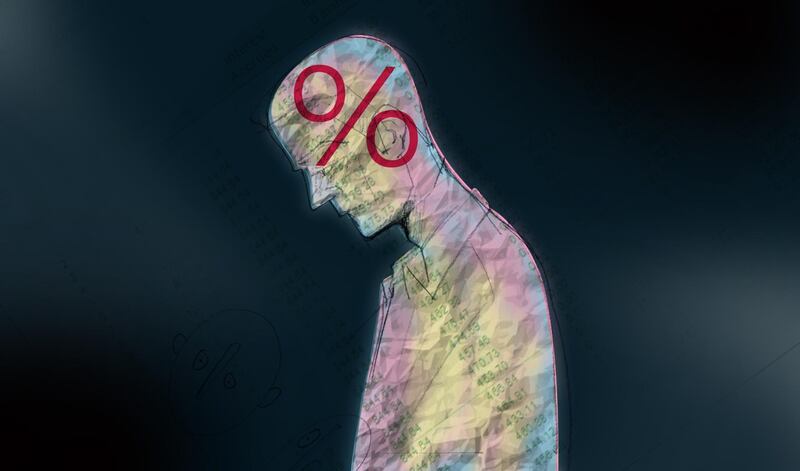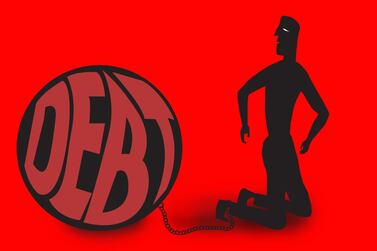In November 2019, I received a phone call from my credit card provider regarding an exclusive offer for customers, like myself, who make all their payments on time. The offer was to convert my outstanding balance of Dh15,375 into 48 instalments of Dh703. This would reduce my monthly payments from the Dh1,100 to Dh1,200 I was paying and allow me to use the spare cash to pay off a utility or phone bill.
From what I understood, if I wanted to close the instalment loan plan early, I would just have to pay the remaining principal amount, any unbilled interest for the month and an early settlement fee. During the call, I made it clear I was looking to settle my outstanding balance as soon as possible.
I made a couple of monthly payments and then decided to close it as I am looking to relocate to Canada at the end of this month, something my family and I have waited two years for. So I was stunned to find out that the lender expects me to pay unbilled interest charges for 46 months. If you multiply the monthly payment of Dh703 a month by 46, that comes to Dh32,338. It means I have to pay more than double the original debt to close the loan.
During the initial phone call, I repeatedly asked for the terms and conditions to be sent to me but this never happened. There is no mention of my payment plan on the company’s website or app and the lender still refuses to send the details in writing.
I raised a complaint and the complaints team allowed me to listen to the phone conversation in which the agent mentions unbilled interest twice. However, at no point does he mention that unbilled interest for the remaining tenure has to be paid if I close the plan early.
As far as I am aware, on card instalment plans, once I pay the full outstanding amount including the unbilled interest for the month, my only other charge is an early settlement fee. The banks are not supposed to charge for future interest.
The lender is asking me to pay four times my salary to settle a debt I was already struggling with. My current salary is Dh6,000 a month working in the catering industry in Sharjah and I live in Ajman. I don’t have any other outstanding debts, as I closed all my previous credit cards.
When I agreed to this settlement plan I did not know I would have to leave so soon. We are worried this will affect our exit from the UAE. I have now filed a complaint with the Central Bank of the UAE and if the worst comes to worst I will pay the amount the lender is demanding because I am a law-abiding citizen. However I will do so only after exhausting all options available to me to challenge this. I plan to return to the UAE in the future, possibly to work, so I do not want to end up with a travel ban. Do I have any options? AT, Ajman
Debt panellist 1: Ambareen Musa, founder and chief executive of Souqalmal.com
It looks like your outstanding credit card balance was restructured into a fixed-interest, fixed-tenure loan, however, at very unfair terms. A quick calculation helps us understand that you were offered an effective interest rate of 46 per cent per annum. This is even higher than the exorbitant average interest rate on most credit cards in the UAE (around 40 per cent per annum, when converted from monthly interest rate into Annual Percentage Rate). This defeats the whole purpose of having your credit card debt restructured, which should help lower your overall interest expenses. So the offer in itself was a huge red flag to begin with.
The second problem lies in you not insisting on seeing the terms and conditions before accepting the arrangement. If you signed up for a new loan, you would want to see the interest rate, tenure, repayment conditions, penalties etcetera on paper before signing up. This offer should not have been any different.
Unfortunately, it has become the norm for banks to have call centre representatives contact customers to offer various services such as credit shield, loan top-ups and restructured payment plans. These are all complex financial arrangements that can't be understood fully over a short phone call.
It's now your word against the bank's, so the only solution is to go through official complaint resolution channels. Since you already have an active complaint registered with the bank, make sure you escalate it to higher management. Your complaint to the central bank should also clearly mention that you were mis-sold the product, without having received any written proof of the terms and conditions pertaining to the offer. If all else fails, seek guidance from a UAE-based legal expert to better understand your legal recourse options in this case.
Debt panellist 2: Philip King, head of retail banking at Abu Dhabi Islamic Bank
While exclusive offers on cards provide benefits to many people, sometimes these are not as advantageous to the customer as they would first appear. As you calculated, by accepting the card provider’s deal you effectively doubled the outstanding balance despite a reduction in the monthly repayments. This doesn’t represent a good result for you in the long term.
However, you took the right action in calling the bank and expressing your desire to settle the outstanding balance early given your plan to relocate to Canada. Based on your account of this call, it seems you agreed an equitable solution that was then disregarded by the bank.
The terms and conditions for this type of financing act as a legally binding contract between the card provider and customer, and once you renegotiated the early repayment plan you should have sought confirmation of the new schedule in writing. Even without this, you have a strong case and the bank should act in good faith with what was agreed over the phone. Banks have a legal obligation to be transparent with their consumers about their offers, and offences of this nature are handled very seriously in the UAE.
You should therefore remain in contact with your card provider as well as the Consumer Protection Department of the Central Bank to continue to raise the case and ensure it is settled before you leave the UAE. Where applicable, it would help if your subsequent communications are written and documented.
There is a possibility of legal action if you fail to settle the outstanding borrowing in full, hence you must ensure closure before you leave the country.
Debt panellist 3: Keren Bobker, an independent financial adviser with Holborn Assets
It sounds as if the outstanding debt was converted into a loan, as these have a penalty or additional charges if they are repaid early. This is a fairly standard business structure as essentially, in return for charging a lower rate of interest, the bank receives interest over a longer period. You are right that there should not be charges for potential future interest on a credit card.
When selling a product over the telephone, bank employees should be clear in explaining all charges and penalties, especially when a customer states a specific requirement, such as repaying a debt early. If an unsuitable product is recommended, or the terms are not made clear and it transpires that it is not what was requested, I would consider this a case of mis-selling.
I am also concerned that a bank is refusing to provide the terms and conditions of an agreement in writing. Not only is this very poor practice, unethical and unprofessional, I suspect it is illegal if the relevant information is not available on the bank’s website. You are right to have filed a complaint with the central bank.
As you have not missed any payments, the bank will have no reason to apply for a travel ban, although when they receive your final salary payment, they are likely to freeze your bank account so plan for this accordingly. A bank has to apply to the courts for a ban and present good reason for requesting this. This takes a little while and you are not in arrears and the amount is relatively small compared to many debts, so the court may not accept the request. Provided all payments are made, and that you receive a satisfactory resolution from the bank, it is unlikely you will have future issues.
The Debt Panel is a weekly column to help readers tackle their debts more effectively. If you have a question for the panel, write to pf@thenational.ae










